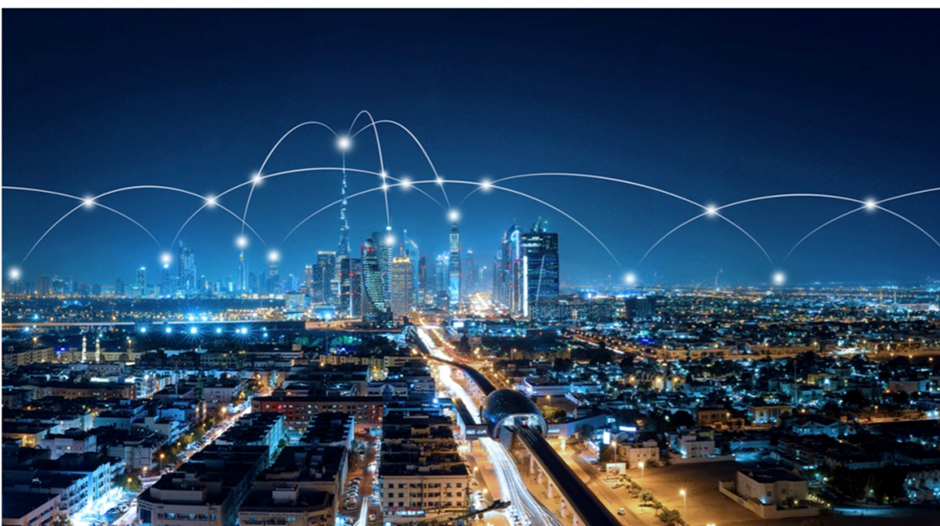
Digitalization in MNC
Digitalization has completely transformed every area of our life in this era of quick technical breakthroughs, including how firms handle marketing. Numerous options exist in the digital environment for expanding one’s audience globally, enhancing consumer involvement, and upgrading marketing tactics. Thanks to the development of technology and the emergence of the internet, the world of marketing has undergone a considerable transition in the current digital era. For companies looking to create an online presence, reach a bigger audience, and boost sales, digital marketing management has become an essential subject. But there are risks associated with the openness of the digital society, particularly when it comes to data security.
I work in the telecommunications industry, which has been a leader in digitalization and has made it possible for many other sectors of the economy. Technology developments and shifting societal demands have moulded the extraordinary adventure of the evolution of telecommunications.
Telecommunications has had an exciting change starting from traditional telephony systems, where landline telephones facilitated voice communication. Manual switchboards and limited connectivity characterized this era.
Utilizing the Data Protection Reform (GDPR)
The General Data Protection Regulation (GDPR) was implemented by the European Union in 2018 in response to growing concerns about data privacy and protection. By providing people more control over their personal data and requiring corporations to answer for how they manage it, this comprehensive data protection law aims to empower people.
Introduction to GDPR in our work has made feel everyone secured. It has guarantee individuals’ fundamental right to have their personal data protected, to allow for the development of the digital economy and to strengthen the fight against crime and terrorism.
While digitalization offers many advantages, it has also presented new problems, particularly cybersecurity. Networks are becoming increasingly susceptible to cyber assaults due to increased interconnection and reliance on digital infrastructure. Strong cybersecurity measures, such as cutting-edge encryption, authentication systems, and threat detection powered by AI, will be essential to protect sensitive data and uphold confidence in the digital world as digitalization advances.
Positive Effects of GDPR
- Improved Data Protection: The GDPR has improved data protection measures, pushing businesses to develop strong security procedures and protect sensitive data well. The GDPR gives people more robust data control. Now that there are explicit rules for processing personal data, telecom professionals can guarantee its availability, secrecy, and integrity. This promotes trust and friendly and open interaction between telecom experts and clients.
- Accountability and compliance: Under the GDPR, telecom professionals must show that they adhere to data protection guidelines. This motivates telecom professionals to implement strong data protection measures, such as risk assessments, privacy impact analyses, and notification policies for data breaches. Ultimately, this contributes to protecting personal data and lowers the possibility of illegal access or data breaches.
Negative Effects of GDPR
- Costs of compliance: Due to the requirement for specialist employees and resources, achieving GDPR compliance for smaller organizations can be financially taxing. The GDPR places heavy requirements on telecom experts, which may make compliance more difficult. For telecom professionals, complying with the GDPR’s needs, such as setting up data protection policies, doing impact assessments, and keeping thorough records, can be time- and resource-intensive, possibly taking their attention away from other crucial activities.
- Legal Framework: The GDPR has complex legal requirements and rules. It can be not easy to comprehend and apply these standards, especially for less experienced telecom personnel requiring additional resources or data protection knowledge. The cost of operations may rise if additional training or specialized staff are needed to comply with the GDPR.

Self evaluation:
Learning about digitization was very interesting along with the videos. We might now be knowing about we are actually surrounded now by digital world. No sooner digital money will also be there. Although there are positive and negative sides of digitization, I believe the positive part outweighs the negative one. I would myself wanted to enter the world of digitiztion and make a change.
I have discovered numerous significant lessons from my investigation into digital marketing management and the advantages and disadvantages of an open digital culture.
- Data Responsibility: It is crucial to handle personal information in an ethical and responsible manner. Prioritizing data security and upholding customer privacy are vital for digital marketers.
- Continuous Learning: The field of data protection and digital marketing is constantly changing. Maintaining a successful and compliant marketing plan requires being current with market developments, best practices, and new laws.
- Innovation and Compliance: It can be difficult to strike a balance between using cutting-edge marketing strategies and abiding by data protection laws. The goal is to come up with innovative solutions to people’s respect people’ right to privacy.
My comments
DIGI SOCIETY – Aleksi’s site (savonia.fi)
DIGI SOCIETY | Living in Selkäsaari (savonia.fi)
DIGI CITIZEN | Pete`s blog (savonia.fi)
Digi Society – Digitalized Working Environment (wordpress.com)